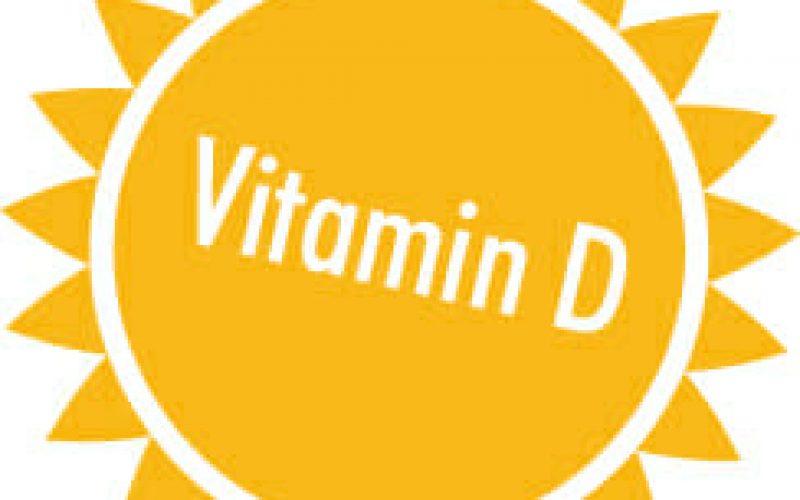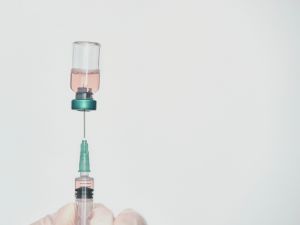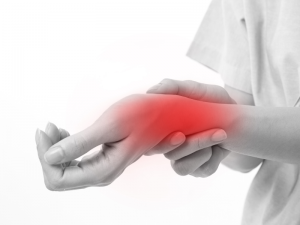Vitamin D is essential for optimal body function; it has a vital role in maintaining bone structure and healthy teeth, but it does so much more to support our health. Vitamin D is interesting because it affects up to 2,000 genes in the body, science shows that it acts more like a hormone than a vitamin.
About 40-75% of the UK population live with silent vitamin D deficiency, they have no noticeable symptoms, and its increasing in northern latitudes, due to lifestyle changes and lower wintertime light levels and weaker sunlight during the months October – April.
Lots of people don’t get enough sun exposure as they spend the majority of their day inside buildings, and on good advice use a daily sunscreen, or cover up when outdoors in the spring and summer.
Deficiencies in adults may cause a vast array of chronic conditions including Osteomalacia (bone softening) and osteoporosis. Low levels in children cause Rickets, a disease in which the bone tissue doesn’t mineralise well, leading to skeletal deformities, fragile bones and poor growth and development. As the affected child grows and gets heavier, the increase in their weight can cause the bones to become bowed, misshaped and deformed. During the postwar boom 50 years ago, Rickets was virtually eradicated in the UK as fortified foods were introduced and children’s diets improved. Alarmingly in 2013, a rise was recorded in this preventable condition.
Why do we need Vitamin D?
- Vitamin D is essential for a healthy heart and blood vessels, it can boost immunity, and may prevent diseases such as rheumatoid arthritis or diabetes.
- Studies show a link between mood disorders and vitamin D; research hasn’t yet confirmed whether low vitamin D causes depression. Or that the levels drop because of depression, further research aims to clarify this.
- Vitamin D can be used to treat skin conditions including vitiligo, scleroderma and psoriasis.
- For those diagnosed with osteoporosis, vitamin D doesn’t offer a cure but may slow further bone loss, Low levels of Vitamin D may be a factor in people suffering from winter depression, also known as SAD (seasonal affected disorder)
Here’s the science bit.
The body produces vitamin D in response to our skin’s exposure to sunlight and UV-B radiation, using a chemical compound naturally present in the outer layers of skin. We then cleverly store it in the fatty tissues and the liver until needed? Sun exposure is an easy, reliable way for people to gain vitamin D.
Types of vitamin D
There are several different forms of vitamin D, the two types two important in human health are;
- Vitamin D2 (ergocalciferol) which is synthesised by plants and is not produced by the human body.
- Vitamin D3 (cholecalciferol) which is made in large quantities in the skin when bare skin is exposed to sunlight. It can also be ingested from animal food sources and mushrooms.
Deficiency risks
- Spending all day indoors or only venturing out in the early morning or late evening, will not produce enough ultraviolet radiation to achieve adequate vitamin D.
- Sunscreen blocks UV-B radiation and prevents the manufacture of vitamin D.
- People who are housebound, along those who cover most of their bodies for cultural or religious reasons.
- People living with a milk allergy, digestive conditions, anorexia and other eating disorders increase the risk of deficiency.
- Strict vegans may be susceptible to severe deficiencies.
- Pregnant women, breastfeeding mothers, and their babies are especially vulnerable, and children under five years of age are also at risk.
- Deficiency increases in people over 65 years of age, they have fewer skin receptors to synthesise UV-B on the skin.
How much do we need?
- The recommended dietary allowance for adults and children over eight years is 600 International Units (IUs) per day with the upper-level being 4,000 IUs.
- It can be a challenge to obtain enough vitamin D from sun exposure and food alone. Although fat it’s soluble it is not abundant in the average UK diet; the richest foods sources are salmon, sardines, egg yolks, cheese and mushrooms (*).
- To make this easier several foods are fortified with vitamin D including milk, yoghurt, breakfast cereals and orange juice.
- Our grandmas were right! Cod liver oil is an excellent source; one tablespoon has more than twice the recommended daily dietary allowance.
* We can make vitamin D-enriched mushrooms by simply exposing them to sunlight for about 60 minutes before eating or cooking, how clever is nature!
How to safely get Vitamin D from the sun
- Exposing the bare skin of the face, hands, and arms will give the best results.
- 15 – 30 minutes, three times a week should be enough for most of the UK population. Although the brief sun exposure needed to produce enough vitamin D, is not enough to cause skin cancer, for those with concern about being in the sun, applying sunscreen after the first 15 minutes in the sun will keep skin protected.
- Exposure time varies with age, skin colour, the season and time of day, for example, with fair-skinned people 10 minutes may be sufficient. People with darker skin tones will need more prolonged exposure to get beneficial levels.
Health guidance
Public Health England advises that everyone needs vitamin D equivalent to 10 micrograms daily. Since it is difficult for most people to meet this recommendation from their diet and sun exposure, it recommends that children over one and all adults take a daily supplement between October and April.
People who lack summer sun exposure due to being housebound or ill-health, cultural or religious reasons will need supplements all year round.
Also, if you have dark skin, whether naturally or through tanning, you may also not make enough vitamin D from sunlight. It would help to consider taking a daily supplement year-round.
Babies and Vitamin D
Those exclusively breastfed until six months of age should have a daily supplement vitamin D of between 8.5 to 10 micrograms. Babies who consume 500ml or more formula milk daily do not need supplementation as formula milk is vitamin D fortified.
Reminder: talk with your doctor or pharmacist before starting supplements; this is especially important for people taking prescribed medication as vitamin D can interact with some medicines.
Disclaimer
This article is for guidance only, it should not be regarded as a substitute for medical advice or treatment given in person by an appropriately trained health professional.
SaveSave
SaveSave
SaveSave
SaveSave
SaveSave
SaveSave
SaveSave
SaveSave
SaveSave
SaveSave
SaveSave
SaveSave







